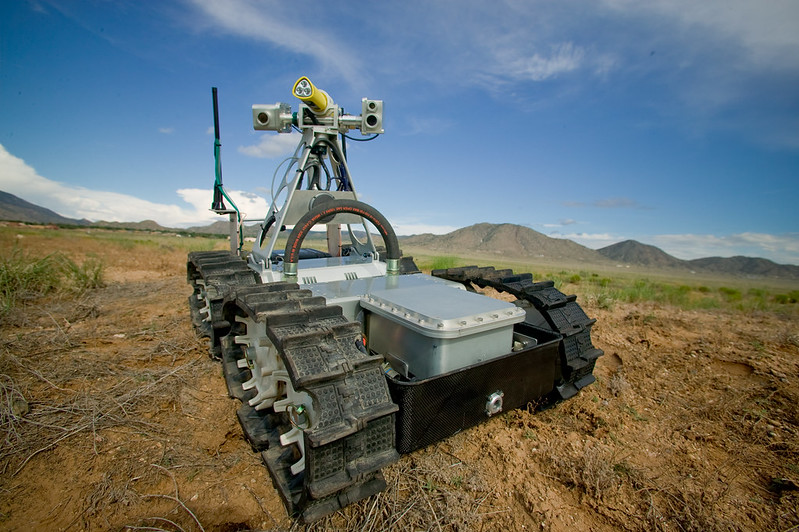CODE conference: A Media, Games & Art Conference, Swinburne – 21-23 Nov 2012
Chris Chesher
Abstract
Robotics research since the 1980s has been establishing codes, conventions and practices that are likely to govern a generation of autonomous robots that is becoming ready for the field. Today’s engineering choices will define the domains of possibility for robots that will inhabit domestic, public and professional spaces in the future. Among their distinctive features are algorithms that degrade gracefully to allow robots to act in environments that they do not fully ‘understand’.
Field robots are distinguished from industrial robots by their capacity to sense, encode and move around unfamiliar spaces. If robots are a kind of medium, their defining features are their capacity to sense and measure new spaces autonomously, identify salient features, and calculate optimal pathways to move and act. The ‘optimal’ pathways calculated by on-board sensors are necessarily imperfect, but because the robot is a physical entity, its agency must always be recoverable. In one engineering approach to this problem of imperfect information, the robot is said to translate space using ‘heuristic search in belief space’ (Bertoli & Cimatti 2002), where belief space is a kind of formalism of contingency opening onto a certain uncertainty. There is a poetry in engineering discourses as they grapple with the unpredictable and the infinite.
As autonomous technical actors are able to adapt to unpredictability, they themselves become less predictable, moving from striated to smooth spaces (Deleuze & Guattari 1987), and from a high degree of control characteristic of simulation to using systems of code that are adaptable to constant adjustments and compensations. Unlike the GUI of personal computers, robots will not necessarily present users with interactive interfaces. Instead, the robot has its own parasocial integrity and autonomous. However, the conventions for relationships with human actors sharing the same physical and social spaces as field robots have yet to be clearly defined.
This paper will explore these ontological and ethical questions about the operation of code in the world as manifest in field robots.


Leave a Reply